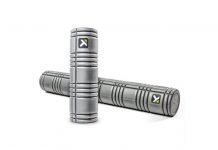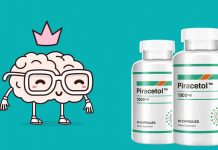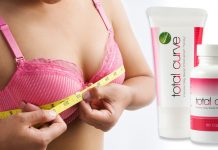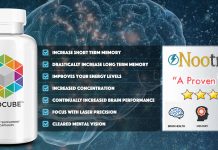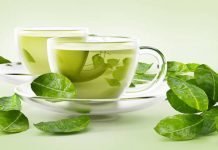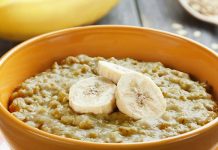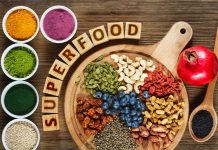
Everywhere you look there are ads and articles about testosterone: Why you should be taking testosterone, how you should be taking testosterone, how much better your life will be with testosterone. There is a torrent of information swirling around, and it can be difficult to sift out the facts from the fluff.
By now, you’re probably aware of why there is so much hype surrounding your T-levels. While we have more than we know what to do with in our teen years, testosterone production starts to decline as early as 30, and continues to decline as we age. In fact, due to the modern lifestyle which usually includes more desk work, less physical activity, and more processed foods, the testosterone levels of today’s American men are significantly lower than they used to be. With possible symptoms including moodiness, changes in body composition and sexual dysfunction, it’s no wonder that T-levels are in everyone’s thoughts.
Testosterone is a major hormone involved in the proper function of the body. Whether you’re looking to liven up your sex life or make bigger gains in the gym, you’re not going to get very far if your T-levels are falling behind. But before you reach for the testosterone injections or gels, try adding one or more of these ingredients to your diet through food or supplements.
D-Aspartic Acid
This is one form of the amino acid aspartate. D-AA works as a neurotransmitter responsible for triggering the release of several hormones, including follicle stimulating hormone, growth hormone, and luteinizing hormone. The release of luteinizing hormone encourages the production of testosterone in the Leydig cells, making D-AA a logical choice as a testo booster. D-AA does play an important role in reproductive function, with studies indicating improvements in the number and motility of sperm in men with low fertility, but results are mixed when it comes to testosterone levels. While one study showed a temporary increase in testosterone in athletes that supplemented with D-AA, other studies saw no differences. However, it has been proposed that D-AA is more useful for men who have low testosterone or are experiencing sexual dysfunction.
Vitamin D
Vitamin D is a fat-soluble vitamin most commonly associated with milk, sunshine, and calcium. It’s a critical vitamin for human health and function, and is involved with bone health and calcium absorption, immune function, and more recently thought to play a role in alleviating symptoms of depression. While we’re aware of the importance of this vitamin, it’s still one that is commonly deficient in the American diet. This is important because studies have found a strong correlation between vitamin D deficiency and low testosterone levels. When Vitamin D levels were brought back up into the normal range, testosterone levels rose as well. By keeping your vitamin D levels in check, you can help maintain your body’s natural testosterone production.
Zinc
Found in oysters, beef, beans, and a multitude of other foods, zinc is an important mineral involved in many important bodily reactions, including DNA synthesis, cell division, and even protein synthesis. While much easier to come by naturally in foods than vitamin D, Americans are still largely deficient in this important mineral as well. And just like vitamin D, zinc deficiencies have been correlated with low testosterone levels. The good news is, like with vitamin D, testosterone levels were seen to rise when zinc levels were supplemented out of deficiency. If you suspect your zinc levels are low, try looking for testo support supplements that have at least 30mg of zinc per serving, like in HexoFire Labs Delta Prime. This amount of zinc everyday has been seen to raise zinc levels into the normal range.
Fenugreek
Natural testosterone boosters can come in plant form as well, and one of the most popular of these is fenugreek. Fenugreek is a flowering plant that has long been used in cooking and traditional Chinese medicine. Modern studies have found that supplementation with 500mg of fenugreek along with a regular weight training program significantly increased testosterone levels in healthy athletes, as compared to a slight decrease in testosterone in those who trained without it. Further, another study found that fenugreek supplementation significantly improved libido, sexual performance and self-reported satisfaction with performance, muscle strength and energy. While more research still needs to be done, fenugreek supplementation may do a lot to help raise your testo levels as well as your expectations and enjoyment in the bedroom.
Ashwagandha
Ashwagandha is another herb popularly used to naturally raise testosterone. It has a long history in Ayurveda and is considered one of its most important herbs. It’s considered an adaptogen, which means it helps the body deal with stress and the stress hormone cortisol. It is through stress management that Ashwagandha helps with testosterone levels, as cortisol is a testosterone killer, and Ashwagandha has been seen to help considerably lower stress, and raise fertility and testosterone levels. Research is still ongoing, but it is certainly a promising herb to keep in your testosterone boosting artillery.
Low testosterone levels can feel like an ominous lurking presence constantly threatening our manhood as we get older. However, by maintaining a proper diet with moderate exercise, an eye on nutrition, and maybe a few extra herbs on the side, keeping your testosterone levels in check can be as simple as popping a few extra supplements a day. If you think that low T levels may be causing you some grief, talk to your doctor to see what options are available to you.
Read our full review about one of the testosterone boosters Testogen >>


